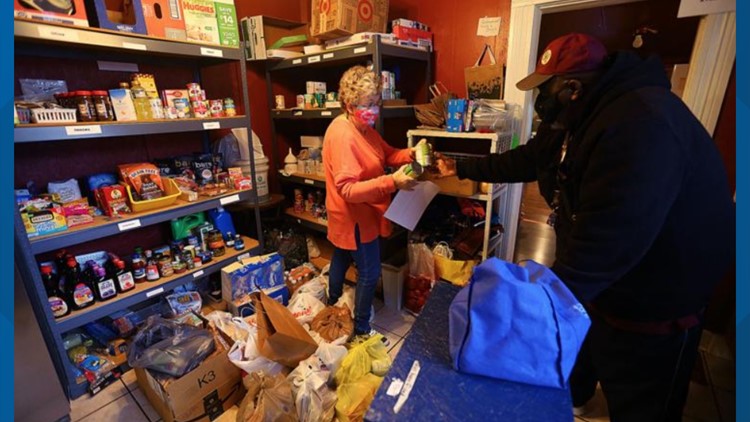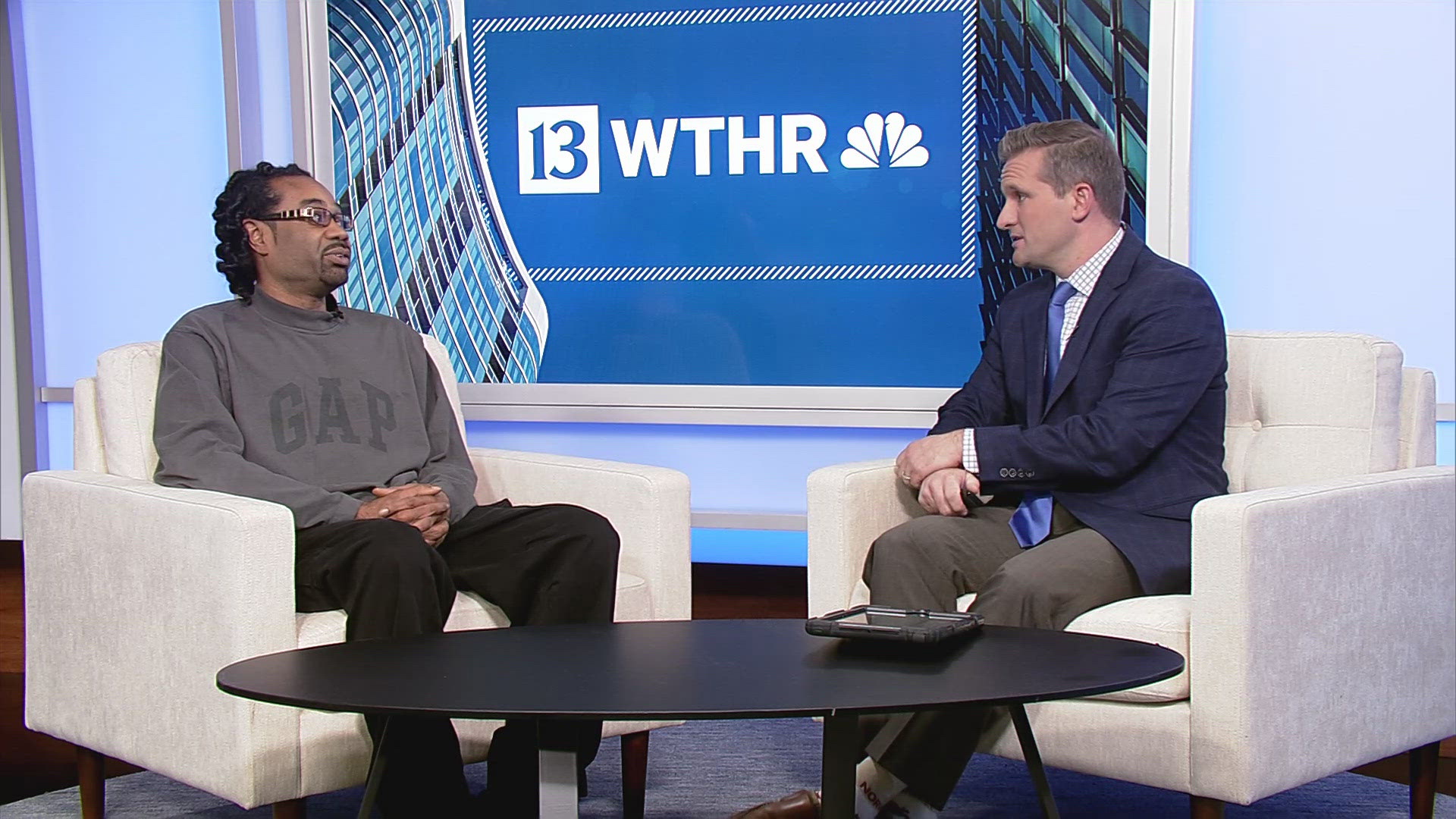KOKOMO, Ind. — Marcia Eckstein, the volunteer director at Kokomo's St. Vincent De Paul food pantry and thrift store, said the outreach gave away a record-setting 1,900 pounds of food last month.
In fact, the number of people coming to the pantry has nearly tripled compared to last year, according to the Kokomo Tribune. Eckstein said they can barely keep enough fruits, vegetables, milk or hamburger on the shelves to meet the need.
So, why the sudden crunch? Inflation.
In February, inflation has spiked to 7% in the U.S., marking the highest rate in 40 years. Some of the hardest-hit commodities are basic necessities, such as food, gas and heat.
That's left local residents, who before would never consider using a food pantry or assistance program, struggling to make ends meet and reaching out for help.
Connie Longshore, investigator supervisor for the Center Township Trustee Office, which provides financial assistance to residents, said she's seen a big increase in the number of people filling out applications to receive money to help pay the bills. The office is even considering hiring another person to help handle the influx.
She said many of those people coming to ask for help have decent-paying jobs, but with the skyrocketing prices of basic goods, their wages simply can't keep up. Many who are requesting assistance are embarrassed that they have to be there at all.
"These are the people who are really contributing to society who are struggling," Longshore said. "We try to comfort them and explain that everybody has a period like this in their life at one time or another. We want to help if we're able to."
She said inflation is especially hurting the city's lower middle class, which earns just enough not to qualify for other state and federal assistance programs, but not enough to cover price spikes caused by inflation.
Food pantry director Eckstein said it's the same story at their facility. She said many new residents coming in have jobs but can't afford to feed their families due to soaring food prices.
And those price increases are a double hit to food pantries. Eckstein said not only are they giving away more food, but they also can't buy as much to divvy out to those in need.
She said that in the past, the pantry always gave out hamburgers and hotdogs to provide protein. Now, they ration how much frozen meat each client receives. Eckstein said they're supplementing peanut butter and tuna as cheaper, protein-rich options.
"The donations just aren't keeping up," Eckstein said last week. "Right now, we're out of cereal, pasta, all that stuff. So I'm going to have to go and buy those at Aldi."
But it's not just food pantries and nonprofits that are taking a hit.
Jon Newlin, who owns Waddell's IGA grocery store in Russiaville, said they've also been at the mercy of inflation. He said that in the past, it was rare to get a price increase from their suppliers. Now, it's happening nearly every day.
"We have to be on guard right now," he said. "On a normal week, we're not raising prices. But right now, we're in that window where inflation has really hit and we have to be extra cautious on checking our numbers on prices."
Newlin said higher prices means customers are watching every penny and buying less. On top of that, supply chain issues caused by the pandemic often leave the store with fewer items on the shelves to sell.
Newlin said add it all together, and inflation is cutting into his business and putting customers in a pinch. He said the most frustrating part, though, is he can't do anything about it.
"If the prices go up, I've got to charge more," he said. "If not, I'll go out of business. It's frustrating. But at least people know what's going on. They don't like it, but they're not coming to me and telling me I'm a horrible person because I'm raising prices. They know inflation is out there."
Newlin said the one thing that's helped them through the financial crunch caused by inflation is the extra revenue brought in over the past couple years, when fewer people were eating out at restaurants during the pandemic and instead buying more groceries.
But with no signs that inflation will slow down anytime soon, food pantries and other assistance programs will continue to struggle to provide help to those who need it.
Eckstein said that in her more than 10 years with St. Vincent De Paul, the financial pain caused by rising prices in the last few months has put the outreach in the tightest crunch they've ever experienced.
"We're just getting so many extra people," she said.
__
Source: Kokomo Tribune



